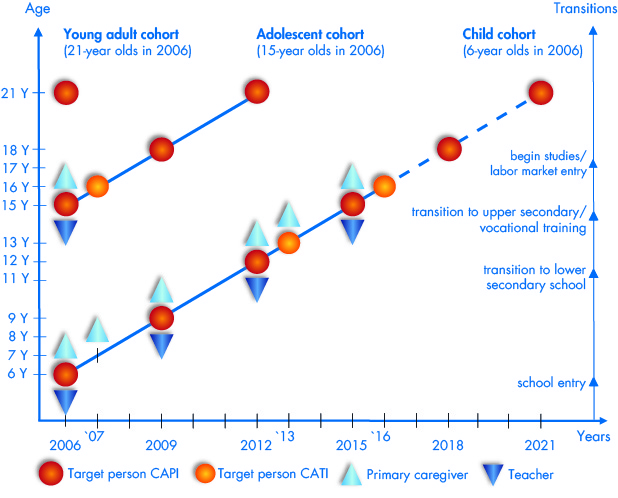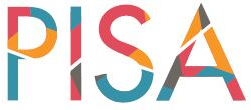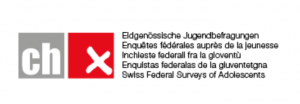Showcase
- BR NWCH. (2025). Checks in BR NWCH 2013 – 2025 (Version 5.0) [Data set]. https://doi.org/10.48573/x18f-d209
- Hryvko, A. (2025). CCSA: Interviews with experts in the field of secondary school education, Switzerland (2025) (Version 1.0) [Data set]. https://doi.org/10.48573/z80m-9c74
- Hryvko, A. (2025). CCSA: Interviews with the teachers in the Canton of Bern (2025) (Version 1.0) [Data set]. https://doi.org/10.48573/hmxf-sd29
- Hryvko, A. (2025). CCSA: Survey of Secondary School Teachers, Khmelnytskyi, Zhytomyr, and Sumy Regions, Ukraine (2024-2025) (Version 1.0) [Data set]. https://doi.org/10.48573/9j34-cf85
- Hryvko, A. (2025). CCSA: Survey of Teachers, Canton of Bern, Switzerland (2024-2025) (Version 1.0) [Data set]. https://doi.org/10.48573/r5h1-sh09
- (2025). DDS21, Cross Sectional Survey Wave 4: Popular Vote on 22.09.2024 (Version 1.0) [Data set]. FORS. https://doi.org/10.48573/e638-ch65
- Study 21118: Incentives in the sexual health survey
- Berchtold, A. (2025). Sexuality-incentives (Version 1.0) [Data set]. https://doi.org/10.48573/ghvh-zk21
- Senn, J., Stolz, J., & Köhrsen, J. (2025). National Congregations Study Switzerland (NCSS) congregational census, waves 1 and 2 (2008–2009, 2020–2021) (Version 1.0) [Data set]. https://doi.org/10.48573/6tqz-q565
- Senn, J., Stolz, J., & Köhrsen, J. (2025). National Congregations Study Switzerland (NCSS) cross-sectional surveys, waves 1 and 2 (2008–2009, 2022–2023) (Version 1.0) [Data set]. https://doi.org/10.48573/km80-t892
- Hungerbühler, L., Hähner, P., Krämer, M., & Bleidorn, W. (2025). PERCIVAL (Version 1.0) [Data set]. FORS. https://doi.org/10.48573/kbhn-5736
- Milford, S., Malgir, B. Z., & Elger, B. (2025). Interviews on AV ethics with Swiss and international experts (Version 1.0) [Data set]. https://doi.org/10.48573/s6fm-y844
- Bugmann, J., Baumberger, B. J., & Calpe, T. (2025). Analyse de scénarios pédagogiques de robotique éducative (Version 1.0) [Data set]. FORS. https://doi.org/10.48573/hw14-1t92
- Guenat, G. (2025). Analyse des débats parlementaires fédéraux et cantonaux (Vaud) sur l’éducation numérique (Version 1.0) [Data set]. FORS. https://doi.org/10.48573/b6mg-zx40
- Sormani, P. (2025). Résumés de colloques publics concernant l’éducation numérique (Version 1.0) [Data set]. FORS. https://doi.org/10.48573/5vg4-rm16
- Vanderlinden, K. (2025). Récapitulatif des évènements et occurrences dans les médias du projet vaudois d’éducation numérique (2017-2021) (Version 1.0) [Data set]. FORS. https://doi.org/10.48573/s28n-tc45
- Study 20960: Speech-to-Text Technology for Students with Dyslexia: Benefits and Challenges of the Tool in the Writing Classroom
- Flütsch Keravec, S. (2025). Intervention Study on Speech-to-Text and Dyslexia (Version 1.0) [Data set]. https://doi.org/10.48573/0sq9-9z27
- Wilhelmi, B., Mani, J., Mas, R., & Erzinger, A. B. (2025). Career Tracker Cohorts (CTC) (Version 7.0) [Data set]. https://doi.org/10.48573/9zp1-w260
- Vacchiano, M., Fernandez, G., Arntz, M., Cianferoni, N., Cullati, S., Massoudi, K., Molina, O., & Steinmetz, S. (2025). The Empty Office: Quantitative Survey (Version 1.2) [Data set]. FORS. https://doi.org/10.48573/reyy-s461
- Eisner, M., Ribeaud, D., & Shanahan, L. (2025). z-proso: Parents Interviews at focal participant ages 7 to 11 (Waves P1-P4) (Version 1.0) [Data set]. https://doi.org/10.48573/fc9f-md46
- Eisner, M., Ribeaud, D., Shanahan, L., Buzzi, A.-L., Panakkal, P., Gloor, C. V., & Jehle, N. (2025). z-proso: Adolescent and Young Adult Surveys (Age 11 to 24; Waves K4-K9) (Version 1.0) [Data set]. https://doi.org/10.48573/y4b2-b002
- TREE.(2025). Transitions from Education to Employment, Cohort 1 (TREE1), Panel waves 0-10 (2000-2019) (Version 6.0) [Data set]. FORS. https://doi.org/10.48573/fdqv-4318
- Bornatici, C., & Zinn, I. (2025). Replication material for: Beyond Tradition? How gender ideology impacts employment and family arrangements in Swiss couples. FORS. https://doi.org/10.25597/0mxm-7t30
- Brazier, C. É., Masdonati J. & Parmentier, M. (2025). Replication material for: Chronicles of involuntary career changes: A longitudinal qualitative analysis. FORS. https://doi.org/10.25597/neg8-ej82
- Kuhn, U., Marquis, L. (2025). Replication material for: Does ideological polarization promote political engagement and trust? Evidence from Swiss panel data, 1999‒2023. [Dataset]. FORS. https://doi.org/10.25597/w0n7-1558
- Brazier, C. É., Masdonati, J., Borges, A., Fedrigo, L., & Cerantola, M. (2024). Replication material for: Drivers of Involuntary Career Changes: A Qualitative Study of Push, Pull, Anti-Push, and Anti-Pull Factors. FORS. https://doi.org/10.25597/ekg0-mg94
- Masdonati, J., Frésard, C. É., & Parmentier, M. (2025). Replication material for: Involuntary career changes: A lonesome social experience. FORS. https://doi.org/10.25597/f0rp-sf34
- Przepiorka, W., Norbutas, L., & Corten, R. (2025). Replication material for: Order without law: Reputation promotes cooperation in a cryptomarket for illegal drugs. [Dataset]. FORS. https://doi.org/10.25597/xce4-2r94
- Gut, R., Ezzaini, J., & Kübler, D. (2025). Replication material for: The Political Maturity of Youths and Young Adults: Empirical Evidence from Switzerland (Version 1.0). FORS. https://doi.org/10.25597/mdh7-bh
- Kübler, D., Gut, R., Heimann, A., Stojanović, N. (2025). Replication material for: Who supports deliberative mini-publics in a context of direct democracy? The role of trust and dissatisfaction. (Version 1.0). FORS. https://doi.org/10.25597/7gba-6384
The project facilitates access to secondary analyses within the context of a pioneering long-term study – the first of its kind in Switzerland – concerning processes of self-healing and self-directed emergence from trajectories of alcohol and heroin dependency. The biographical and addiction-centric evolution of a cohort of 30 alcohol and heroin self-healers (split evenly between men and women), recruited via media channels, was meticulously captured over four temporal junctures. This was achieved through elaborate efforts to repeatedly engage these hard to reach target groups for follow-up surveys. The years encompassed were 1988/89, 1992, 1996, and 2002, under the support of the Swiss National Science Foundation and the Federal Office of Public Health, and covers qualitative and, to some extent, quantitative records.
The immensely intricate reservoir of data encompasses standardised and open inquiries directed towards collateral individuals, alongside a control cluster (untreated, issue unresolved). The current dataset (Version 1.0.0), in its preliminary form, pertains to the available qualitative data, including textual and visual (free life story drawings) information from the self-healers of the baseline survey.
The dataset is accompanied by an extensive compendium, chronicling the recruitment, data collection, and detailed concluding reports. This documentation is publicly accessible and serves as a resource for researchers contemplating engagement with delicate and hard-to-reach demographics. Moreover, it holds historical significance. The data themselves are accessible under a Restricted Contract; hence, prospective researchers and scholars are urged to log into SWISSUbase and provide a rationale for their research pursuits prior to being granted data access.
The first TREE cohort (TREE1) has been launched in 2000 and draws on a large national (compulsory) school leavers’ sample (N>6,000) tested and surveyed on the occasion of Switzerland’s then first-time participation in PISA. Since then, the sample has been followed up by means of 10 panel waves, the most recent one conducted in 2019/20. Further panel waves are planned at five-years intervals. Today, TREE1 respondents have reached an average age of approximately 35 and been surveyed for a period of over 20 years, spanning from early adolescence up to early middle-age. The study thus has gradually grown into a full-blown life course survey.
Over the years and across a wide range of academic disciplines (e.g. sociology, economics, psychology, educational and health sciences), TREE1 has become an invaluable database for research on pathways and transitions of adolescents and (young) adults. Today, TREE1 is to be found among Switzerland’s most widely used data infrastructures in the social sciences.
The second TREE panel study (TREE2) covers a comparable population of school leavers who left compulsory education in 2016. As its baseline survey, it draws on a national large-scale assessment of mathematics skills. Since then, the TREE2 sample has been re-surveyed at yearly intervals. Further panel waves will be conducted with the objective to replicate, as closely as possible, TREE1’s panel design.
Data for both cohorts are available in SWISSUbase. For further information see TREE’s study website and the SWISSUbase catalogue.
CCS has been running since 2005, and candidate surveys using the CCS wave I questionnaire were conducted in about 30 parliamentary elections. Wave II was fielded between 2013 and 2018 and comprises 30 elections in 21 countries. Wave III was fielded between 2019 and 2024 and to date contains 13 elections across 11 countries.
Data access
Data from the CCS are available on our online system SWISSUbase. The CCS wave I cumulative dataset (2005 -2012) includes a total of 32 elections from the following countries: Australia ; Austria ; Belgium ; Canada ; Czech Republic ; Denmark ; Estonia ; Finland ; Germany ; Greece ; Hungary ; Iceland ; Ireland ; Italy ; Luxembourg* ; Malta ; Netherlands ; New Zealand ; Norway; Portugal ; Romania ; Sweden ; Switzerland ; and the United Kingdom. The CCS wave II cumulative dataset (2013 – 2018) includes a total of 30 elections from 21 countries: Germany, Switzerland, Canada, Greece, Australia, Sweden, Norway, Hungary, Montenegro, Albania, Iceland, Romania, Estonia, Finland, Portugal, Chile, Belgium, Czech Republic, Ireland, Spain, and United Kingdom. To date, the CCS wave III cumulative dataset (2019 – 2024) includes a total of 13 elections from 11 countries: Canada, Ireland, Portugal, Romania, Switzerland, Finland, Germany, Iceland, Montenegro, Sweden, and the United Kingdom.
If you are not already registered with SWISSUbase, you will need to do so (click here to register). After logging in and arriving at the CCS catalogue page, click on the tab “datasets”, select the dataset and then click on “Start download”. After submitting your application, your request will need to be approved first by the CCS data access committee (usually 1-2 business days). Once approved, you will be able to access the data immediately within SWISSUbase.
Study and dataset description in our SWISSUbase catalogue.
Further information on the CCS website, or contact Anke Tresch at FORS.
The survey 2016-17
Theme
The ch-x 2016-17 survey addresses geographical mobility with a focus on temporary stays of young Swiss people in another linguistic area of Switzerland or abroad. Such stays can be of short duration (1-3 weeks) or longer (more than three weeks) and may take various forms: educational exchanges, language stays, backpacking trips, internships, or voluntary work experiences, etc. To a lesser extent, questions were also asked about other forms of mobility, such as residential mobility and migration. While some studies (mainly Anglo-Saxon and qualitative) have addressed temporary mobility from the perspective of university students, the ch-x 2016-17 survey represents a unique data source, both in terms of its sample size and population characteristics – more than 40,000 young people from all backgrounds, in education or employment, mobile and non-mobile.
Data
A total of 106 questions were asked to more than 40,000 young men aged 18-19 years as part of the recruitment procedure. A sample of women in the same age range also responded to the questionnaire. After data cleaning, the final database consists of 40,503 young men and 2,126 young women. The questionnaire consists of seven sections: socio-economic characteristics, educational and professional background, mobility experiences, living environment, plans for temporary stays, attitudes and opinions, and finally questions on the respondents’ families.
Access to data and documentation
Full documentation and data are available in SWISSUbase.
Publications
The 2016-17 survey gave rise in September 2019 to a publication for the general public, produced in collaboration with the University of Lausanne: “Entre mobilité temporaire et ancrage local : portrait de la jeunesse suisse”, available here (publication in French with German and Italian summaries). An English summary is available here.
Other articles and publications:
Further information on the ch-x website, or contact Alexandra Stam at FORS.
Major Research Aims
COCON investigates from a life course perspective the interplay between the social contexts of growing up and the competence development of children and adolescents.
Analytical Interests
COCON examines the antecedents and consequences of the coping with early life course transitions, investigating thereby how the interplay of social contexts and young people’s development is affected.
Major areas of the date collection:
- Family: Background, Structure and Interactions
- Educational and Work Trajectories
- Peers and Leisure
- Identity, Personality and Wellbeing
- Social and Productive Competencies
- Morality and Values
Funding
Over several years COCON was funded by the Swiss National Science Foundation, first as part of the National Research Programme 52 “Childhood, Youth and Intergenerational Relationships in a Changing Society”, afterwards as a social science infrastructure project. COCON is also financially supported by the Jacobs Center for Productive Youth Development at the University of Zurich and is part of the research program of the Jacobs Center.
Cohorts and waves
COCON includes three age cohorts residing in the German- and French-speaking parts of Switzerland. Each of the selected age cohorts represents a prototypal stage in the course of growing up: middle childhood (6 year olds); middle adolescence (15 year olds) and late youth or early adulthood (21 year olds).
The child cohort includes children of 6 years of age old in 2006. The aim is to survey these children up to the age of 21. The youth cohort consists of 15-year-old adolescents in 2006. The great majority was about to finish obligatory schooling and shortly before transitioning to upper-secondary education, either vocational and educational training (VET) or general-education schools. The adult cohort includes around 600 21-yearold young adults, surveyed once in 2006.

More detailed information about the project is available on the COCON website.
In Switzerland, it was a school-based epidemiological survey carried out in 2009-10, with almost 7’000 youth between 15-17 years of age. The survey collected lifetime and previous-year prevalence of sexual victimization experiences for a nationally representative sample, as well as information on other types of maltreatment, risk factors, protective factors, and consequences of victimization. Click here for more information about the Swiss dataset.
The Chinese study included a household survey of 3’321 children age 15-17 and 8’945 parents of children age 0-17, as well as a school-based survey of 18’341 students age 15-17. Click here for more information about the Chinese datasets.
In South Africa, the study was conducted with a sample of more than 9’000 youth between 15-17 years of age. Click here for more information about the South African dataset.
Data access
Access to the Swiss, Chinese, and South African data is possible by way of our online system SWISSUbase. If you are not already registered with SWISSUbase, you will need to do so. After logging in and arriving at the Optimus Study catalogue page (Swiss data, Chinese data, South African data), click on the tab “dataset”, select the dataset that you want to acquire, and then click on “download data”. After submitting your application, your request will need to be approved first by the Optimus Study data access committee (usually 1-2 business days). Once approved, you will be able to access the data immediately within SWISSUbase.
You can learn more about the Optimus Study here.
Until 2012, Switzerland chose the option of studying the population of students in the 9th year of education as well as 15 year old students. The sample of 9th year students allows comparisons within the country between linguistic regions and, thanks to supplementary cantonal samples, between the cantons. Since 2015, only the 15-year-old sample has been tested.
Data access
The Swiss PISA datasets (9th grade) for 2000, 2003, 2006, 2009, and 2012 are available on SWISSUbase for interested researchers. To access the data, please click on the years.
The international PISA data (15 year olds) are available on the OECD website.
The Swiss PISA datasets (15 years) for 2015 and 2018 are available on SWISSUbase. These datasets complete the international data published on the OECD website, with some information relevant for the Swiss context as well as some national options. For 2018, a dataset limited to the sampled schools in the canton of Ticino is also available on SWISSUbase.
In 2009, a similar survey entitled “Our World. Views from the Field” was undertaken in 8 countries that were experiencing or had experienced armed conflict or other situations of armed violence. The aims were to develop a better understanding of people’s needs and expectations, to gather views and opinions, and to give a voice to those who had been adversely affected by armed conflict and violence.
The initial survey “People on War” was repeated in 2016 in 11 countries affected by armed conflict, as well as with the five permanent members of the UN Security Council and Switzerland. Many of the questions were asked as part of the first survey and so allow comparison after a 20-year interval.
Project description and data access in SWISSUbase
People on War UK survey 2007
To mark the 30th anniversary of the Additional Protocols to the Geneva Conventions, the International Committee of the Red Cross repeated in the United Kingdom the 1999 People on War survey conducted in 17 countries. Key questions from the 1999 survey were asked to a representative sample of 1,000 people, to observe changes in British public opinion.
VOX surveys
From 1977 to 2016, VOX surveys are conducted with representative samples of eligible voters and take place during the two or three weeks following a vote. The principal points covered during telephone interviews include: general political opinions and habits, political and associative affinities, degree of knowledge of the items put to vote, the various aspects relating to the decision on how to vote on these items, how the individual’s opinion is formed and, finally, the individual’s evaluation of the importance of what is at stake with each item.
The data of the VOX surveys are archived at FORS and are available via our portal SWISSUbase. Available VOX surveys start with the vote of 14 June 1981 and end with the vote of 5 June 2016. Because the VOX have not yet been systematically assessed, FORS disclaims any liability for errors that could be present in this material.
VOTO surveys
The VOTO project analyses, after each federal popular vote, the reasons why Swiss voters participated, and explains their decisions. In order to ensure continuity, the essential questions asked in the VOX survey were included in the VOTO surveys. Since the vote of September 25, 2016, the publications presenting the main results of the analyses are freely accessible on the project site. The data are available in SWISSUbase.
Standardized VoxIt surveys
The Voxlt data combine information from several sources into one file. First, the data integrate and harmonise the most significant variables in the post-vote surveys (VOX). A second type of variable includes specific characteristics such as the date of the vote, the results of each item, participation rates, slogans of the federal government and the principal political parties. Finally, the standardized surveys include a third type of variable, created specifically to synthesize certain data and/or to allow comparisons from across the whole range of the available surveys.
All datasets are available in both SWISSUbase (cumulative files) and DeVisu (files by scrutins and by projects).
These surveys cover various themes, such as economics, education, mobility, and health, and aim for understanding the evolution of society in its entirety.
With the goal of promoting the use of public statistical data, the FORS data service:
- offers a brief description of each survey;
- makes it possible to compare the FSO surveys and to find the ones that best address your research questions.
Discover a variety of Swiss datasets in education that can be obtained via SWISSUbase and reused for secondary analyses
The Programme for International Student Assessment (PISA) evaluates 15-year-olds’ ability to use their reading, mathematics and science knowledge and skills. Since 2000, Switzerland participated in every PISA cycle conducted by the OECD.
Download the Swiss PISA data (9th grade) for 2000, 2003, 2006, 2009, and 2012.
Download the Swiss PISA 2015 and 2018 data (15 years old). These data complement the international data published on the OECD website.
The international PISA data (15 year olds) are available on the PISA pages of the OECD.

TREE is a large panel survey following up compulsory school leavers from all over Switzerland through their post-compulsory education and training and into employment and adulthood. The first TREE cohort (TREE1) started in 2000 and has been interviewed ten times to date. The second TREE cohort (TREE2) left compulsory school in 2016.

PICE is a subsidiary of TREE that deals with the educational pathways of young adults and is particularly interested in how they are accompanied by their families on their way to professional life: PICE wants to analyse what educational aspirations young people in Switzerland have and whether or how they are supported by their parents.
To download quantitative data: see TREE
Download the qualitative data.

In two-year cycles, the Federal Youth Surveys ch-x interview young men who start military service (about 30,000 annually, aged 19) as well as about 8,000 19-year-old Swiss women and, depending on the project, additional women and men of foreign nationality. The content ranges from school and life knowledge to questions about health, sport and quality of life.
Download the dataset ch-x 2016-2017
More information on the ch-x study

Since 2012, the DAB panel study has been collecting longitudinal data on the vocational and educational situation of young people in German-speaking Switzerland. The selected adolescents have been accompanied since their eighth school year and have so far been interviewed in nine surveys about their current educational situation as well as their educational and career aspirations. From a life course perspective, the DAB panel makes a theory-driven and empirical contribution to clarifying relevant issues in the field of vocational education, labor market and occupational research that could not be addressed so far with the longitudinal data available in Switzerland.
The Checks in Bildungsraum Nordwestschweiz are standardised school performance assessments conducted on the primary (third and fifth grade) and the lower secondary school level (eighth and ninth grade). They were gradually introduced in the cantons of Aargau, Basel-Landschaft, Basel-Stadt and Solothurn since 2013 and are administered annually. The collected data contain school performance data of students alongside some contextual variables as well as response data to the different tasks assigned.
More information on Check dein Wissen

Several longitudinal studies about school-to-work transition exist in Switzerland and other countries. However, there are no school-based longitudinal studies that analyze educational pathways from primary school to dual-track VET and tertiary education or work. The study «Effects of Tracking» (German: Wirkungen der Selektion, WiSel III) continues earlier research on transition from primary school to secondary school (WiSel I and WiSel II), so educational pathways from primary school until five years after graduation from secondary school can be analyzed.
Download the WISel Welle 1-3 datasets
Download the WISel Welle 4-5 datasets
More information on the WISel study

In 2011, the national educational goals were defined as basic competencies in four subject areas (school language, mathematics, natural sciences, foreign languages), which all pupils should have acquired by a certain point in their school careers. The acquisition of these basic competencies is considered a central prerequisite for further educational processes and, beyond that, for the students’ future participation in society.
Against this backdrop, the Überprüfung der Grundkompetenzen (ÜGK) was launched. The surveys examine how well students in Switzerland achieve a particular aspect of the educational goals.
Download the ÜGK 2016 – Mathematik HarmoS 11 dataset


 +41 (0)21 692 37 30
+41 (0)21 692 37 30

